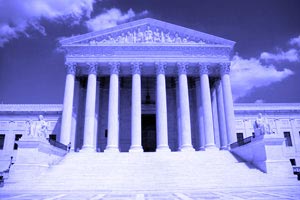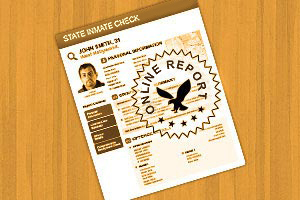Connecticut Public Records
The Connecticut State Records website provides every person with the right to gather, obtain, and examine public records. This ensures that Connecticut residents have access to this information in accordance with the Connecticut Freedom of Information Act. This act states that all government information and records are available to the public unless made confidential.
This website ensures that all members of the general public have an easy way to use their right to access Connecticut state public records, without requiring a reason for needing the information, or revealing any personal information - providing that said record is not confidential by law or court order.
Connecticut State Records contains information about criminal records, court records, and vital records. It includes over 30 million transparent public records.
Are Connecticut Records Public
Connecticut public records are generally accessible to state residents and non-residents and may consist of data from government bodies and external sources. The Connecticut Public Records Act or Freedom of Information Law outlines the process and procedure of accessing Connecticut public records. In addition, the Connecticut public records law dictates the type of records accessible to the public. Under the law, the record custodians are responsible for maintaining, storing, producing, and issuing copies of public records to interested public members.
What is Considered Public Information in Connecticut?
Connecticut public records may include:
- Connecticut arrest records
- Connecticut criminal records
- Connecticut court records
- Connecticut divorce records
- Connecticut sex offender information
- Connecticut inmate records
- Connecticut property records
- Uncertified copies of vital records (including birth records and death records)
Per Section 1-200 of the Connecticut Freedom of Information Law, public records or files may include typed, handwritten, tape-recorded, photocopied, videotaped, photographed data, such as emails, maps, graphs, charters, books, memoranda, folders, symbols, music files, and videotapes. Irrespective of the public record format, record custodians are required under the FOIA to provide copies of non-confidential public records to requesters. The FOIA prohibits the disclosure of sensitive and confidential public documents.
To obtain Connecticut public records, interested members of the public may conduct a public data search using the online repositories maintained by official custodians. These databases typically offer paid or free public data search depending on the record of interest. If the concerned agency refuses to honor a public records act request, the requesting party must be provided with a reason for the refusal with an accompanying statute where it applies.
How Do I Find Public Records in Connecticut?
Record seekers can find public records in Connecticut by contacting the custodian body responsible for producing, maintaining, or issuing the public document. For instance, persons seeking to access court records may visit the Clerk of Court, whereas the Connecticut Department of Corrections is the primary custodian of inmate records. Similary, persons interested in vital records may query the state vital records office and those seeking property records may visit the county assessor’s office. However, property records may also be held by the county recorders office or the Register of Deeds. Although record custodians have different ways of providing access to documents, record seekers may access records via the following general steps:
Know the Specifics of the Preferred Public Record
To know how to access public records in Connecticut, record seekers must identify the specifics of the requested record. First of all, record seekers must identify the record custodian of the preferred document.
Furthermore, record seekers must note the requirements for obtaining public documents. While some public records do not require a statement of purpose or identification, record seekers may need to prove a statement of purpose or a government-issued I.D when requesting public records. For example, vital records like birth and divorce records may contain confidential information. Therefore, the Connecticut Vital Records Office may issue copies of these records to only the record bearer or the record bearer's family members.
Contact the Custodian Agency in Charge of the Public Records
Under the Connecticut FOIA, record seekers must contact custodian agencies to view or get copies of public documents. Record seekers must identify the custodian agency and note the agency's mode of providing access to Connecticut public records. Access to public records in Connecticut is mostly via online and offline methods.
Connecticut public records custodians may maintain an online database of public documents or allow record seekers to obtain records in-person at the agency's physical address. Likewise, record custodians may issue copies of public records or allow only public inspection of the document. That said, record custodians in Connecticut include, but are not limited to, the following:
- Connecticut Vital Records
The Connecticut Department of Public Health is the statewide record custodian of vital records. On the other hand, vital records are also obtainable at the state vital records office and the vital records office of the region where the event occurred. Therefore, persons seeking to obtain these records must contact the record custodian either in person or via mail. To obtain vital records in person, send a request to the Vital Records Office where the event occurred. Alternatively, record seekers may visit the State Vital Records Office at the address below:
CT Department of Public Health
State Vital Records Office
410 Capitol Avenue, 1st Floor
Hartford, CT 06106
Interested public members may request and access Connecticut inmate records via the State Department of Corrections' online platform. Record seekers can conduct searches on the online platform by inputting this information: - Connecticut Inmate Records
- Offender’s first name and last name;
- Date of birth;
- CT DOC number.
Create and Send Request for Connecticut Public Records
Custodian agencies may require record seekers to write and send their requests to access public records in Connecticut. Sometimes, the agency provides records seekers with a downloadable request form template. In the absence of a request form template, the record seeker must write a request to the record custodian by including the following data:
- The requester's first name and last name
- Date range when the record was documented;
- Preferred mode of delivery;
- Record seeker’s contact details;
- The record seeker’s full name and, or aliases;
- The record subject's date of birth;
- The case number (this applies to court records);
- Purpose of the request - provide a detailed description of your request;
- Additional information to assist with the search.
However, it should be noted that, requestors seeking certified copies of these records may be required to provide additional data/documents. For instance, persons seeking a certified birth record or other vital records must present a signed and notarized consent form from the record holder to the State vital records office upon making their query.
Using Third-Party Sites to Find Public Records in Connecticut
City Records
Public city records may also be accessible from third-party websites. These non-government platforms come with intuitive tools that allow for expansive searches. Record seekers may either opt to use these tools to search for a specific record or multiple records. However, users will need to provide enough information to assist with the search such as:
- The name of the subject involved in the record (subject must be older than 18 or not juvenile)
- The address of the requestor
- A case number or file number (if known)
- The location of the document or person involved
- The last known or current address of the registrant
Third-party sites are not sponsored by government agencies. Because of this, record availability and results may vary.
Public Records
Public records can also be accessed from third-party websites. These third-party public records aggregate websites offer search services that are non-geographically limited, making the search result expansive and typically straightforward. However, users will need to provide enough information to assist with the search, such as:
- The name of the subject involved in the record as long as the subject is not a juvenile
- The last known or location of the record subject
Third-party public records search websites are not government-sponsored services. Therefore, the availability and accuracy of results can vary.
Connecticut public records were recorded from the year 1855. These records include information from all 8 counties. For the past 30 years, the digitalization of public records is becoming the standard. This means records are digitized and stored online where records are increasingly available through both third-party and government websites. This ensures Connecticut abides by the commitment of the United States of America to remain a fair and just society for all.




